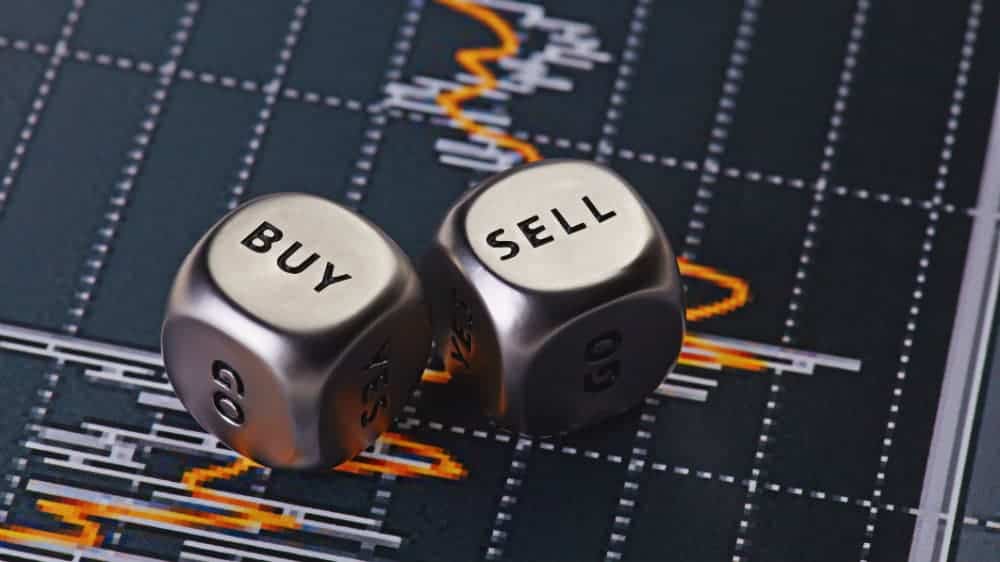Share this page:
Over the last few years, the cryptocurrency space has experienced a surge in demand and innovation. One of the latest developments to hit the market is the Bitcoin futures ETF, which was launched on 19 October in the US.
While Bitcoin may be the most well-known cryptocurrency out there, many traders remain unsure about the new futures ETF. Consequently, the ETF has been met with a wave of scepticism since its release.
The Bitcoin futures ETF is a new way of trading for even the most experienced investors. To help you understand exactly what the new Bitcoin development is, here’s everything you need to know.
What is the Bitcoin futures ETF?
Although they stem from the same coin, the Bitcoin futures ETF is largely different from Bitcoin BTC.
The futures ETF is a type of exchange-traded fund. This means that traders are able to participate in Bitcoin investment without having to buy the coin directly. ETFs track the price of movement of an asset. Meaning that the ETFs can be used to track the future price of Bitcoin.
When investors buy into a Bitcoin futures ETF, they enter into an agreed contract to buy or sell Bitcoin at a future date. Those who chose to invest in a Bitcoin futures ETF will need to ensure that they hold enough Bitcoin to make up the value of the Bitcoin futures ETF.
How does the futures ETF work?
The futures ETF tracks futures contracts that predict the price of Bitcoin. This means that those who trade the ETF don’t actually buy the coin itself. Because of this, the prices of the Bitcoin futures ETF and Bitcoin BTC will rarely match.
For this reason, a Bitcoin futures ETF could trade at a premium during a bull run. However, it could also trade at a discount during a bear market.
Traders can purchase a Bitcoin futures ETF through a traditional exchange. This is much like any other digital asset. However, when dealing with a Bitcoin futures ETF, traders don’t have to worry about digital asset storage or security protocols.
Is the Bitcoin futures ETF different from the Bitcoin ETF?
The Bitcoin futures ETF is not backed by Bitcoin itself. Whereas, the Bitcoin ETF is physically backed by the digital asset. The Bitcoin futures ETF is instead backed by futures contracts (derivatives). This means that investors do not have to store any physical assets.
Unlike the Bitcoin futures ETF, the Bitcoin ETF will not diverge from the spot price of Bitcoin. This is because the Bitcoin ETF tracks the current price as opposed to future speculations.
How has the Bitcoin futures ETF affected the market?
The introduction of the futures ETF has allowed investors to trade assets outside of cryptocurrency exchanges. This means that traders can bypass security. As a result, the asset has become popular with those who are wary of crypto regulation.
Since its launch on 19 October, the price of Bitcoin has soared to a new all-time high of $66,900 (£48,900). The new Bitcoin futures ETF has triggered major market volatility, which is expected to continue.
Amid the widespread hype around the new ETF, experts have issued warnings over ‘contango bleed’. This refers to the underperformance that may occur as a result of longer-dated contracts trading higher than shorter-dated contracts.
Fear of contango bleed and confusion around regulation have left many traders sceptical. While the market may seem in favour of the new Bitcoin futures ETF, there are still many traders who are hesitant to invest.
How can you invest in the Bitcoin futures ETF?
The Bitcoin futures ETF can be traded through traditional exchanges and markets. This eliminates the need to have an account with a cryptocurrency exchange.
There is much debate between experts as to whether the Bitcoin futures ETF is a strong investment. Before choosing to invest, we recommended that you familiarise yourself with any risks that are involved with trading. It might also be a good idea to seek the advice of an expert.
Investing in Cryptocurrency is extremely high risk and complex. The Motley Fool has provided this article for the sole purpose of education and not to help you decide whether or not to invest in Cryptocurrency. Should you decide to invest in Cryptocurrency or in any other investment, you should always obtain appropriate financial advice and only invest what you can afford to lose.
Was this article helpful?
YesNo
About the author
Ruby is a freelance writer who enjoys writing about all things personal finance. After embarking on her own side hustle journey three years ago, Ruby is passionate about helping others to learn about the ins and outs of persona… Read More
Share this page:
Some offers on The Motley Fool UK site are from our partners — it’s how we make money and keep this site going. But does that impact our ratings? Nope. Our commitment is to you. If a product isn’t any good, our rating will reflect that, or we won’t list it at all. Also, while we aim to feature the best products available, we do not review every product on the market. Learn more here. The statements above are The Motley Fool’s alone and have not been provided or endorsed by bank advertisers. John Mackey, CEO of Whole Foods Market, an Amazon subsidiary, is a member of The Motley Fool’s board of directors. The Motley Fool UK has recommended Barclays, Hargreaves Lansdown, HSBC Holdings, Lloyds Banking Group, Mastercard, and Tesco.
This post was originally published on Motley Fool




